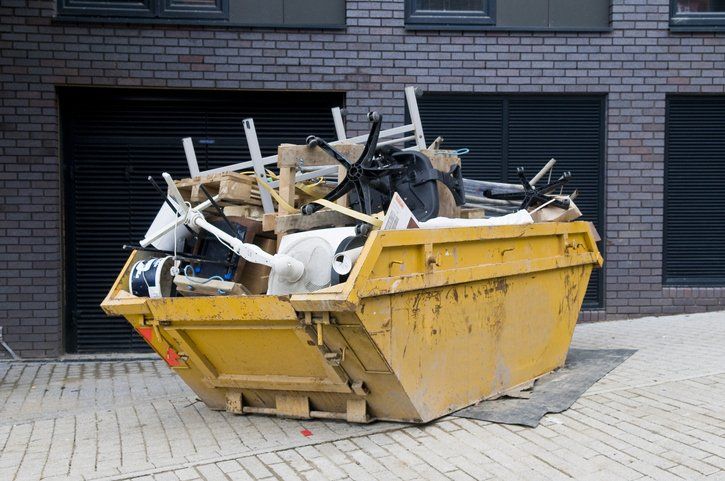Household hazardous waste (HHW) is any waste generated from the use of products that contain chemicals that can cause harm to human health and the environment if not disposed of properly. This type of waste can include anything from pesticides and cleaning products to batteries and electronics. Improper disposal of HHW can pose serious health and environmental risks, so it is crucial to understand how to dispose of it safely and responsibly. In this blog post, we will provide you with some tips and guidelines on how to properly dispose of household hazardous waste.
Identifying Household Hazardous Waste
Before we delve into how to properly dispose of HHW, it is essential to identify what qualifies as HHW. Examples of common HHW found in households include:
- Batteries
- Fluorescent tubes and compact fluorescent lamps (CFLs)
- Pesticides and herbicides
- Oil and gasoline
- Paints and solvents
- Cleaning products
- Medications
- Electronics
If you are unsure whether an item is considered HHW, check the product label or contact your local council or waste management facility for guidance.
How to Dispose of Household Hazardous Waste
Now that we have identified what qualifies as HHW, let us explore how to dispose of it safely.
- Store HHW safely
When storing HHW, it is important to ensure that the products are properly sealed, labelled and stored in a cool, dry and secure location away from children and pets. Do not mix different types of HHW, as this can create a dangerous chemical reaction. Additionally, never store HHW in food containers, as this can lead to accidental ingestion.
- Check for collection services
Many local councils and waste management facilities offer collection services for HHW. Check with your local council to see if they offer a scheduled collection or drop-off service for HHW. Some waste management facilities may also offer permanent or temporary drop-off sites where you can dispose of HHW.
- Use HHW disposal services
If your local council does not offer HHW collection services, there are other ways to dispose of HHW safely. Some waste management facilities and commercial organizations offer HHW disposal services for a fee. These services can vary, from on-site pick-up to drop-off at a designated location. Check with your local waste management facility or search online for a local HHW disposal service.
- Recycle or repurpose
Many items considered HHW can be recycled or repurposed. For example, used batteries can be recycled, while old electronics can be refurbished or stripped for parts. Check with your local council or waste management facility to see if they offer recycling or repurposing programs for HHW.
- Properly dispose of pharmaceuticals
Pharmaceuticals are a common type of HHW and require proper disposal to avoid contamination of waterways and harm to wildlife. Many pharmacies and local councils offer take-back programs for unused medications. If a take-back program is not available in your area, the U.S. Food and Drug Administration (FDA) recommends the following steps for the safe disposal of medications:
- Remove medications from their original container and mix them with an undesirable substance such as coffee grounds or kitty litter.
- Place the mixture in a sealed container or plastic bag and dispose of it in the trash.
The FDA advises against flushing medications down the toilet or sink, as this can lead to contamination of waterways.
- Dispose of paint and other chemicals responsibly
Paint and other chemicals require special handling when disposing of them. Check with your local council or waste management facility for specific instructions on how to dispose of these items, as methods can vary depending on your location.
Why Proper Disposal of Household Hazardous Waste is Important
Proper disposal of household hazardous waste is crucial for several reasons. First and foremost, HHW can pose a significant risk to human health and the environment. Improper disposal can lead to contamination of soil, water, and air, which can harm wildlife and vegetation and lead to health problems for humans. Additionally, improperly disposed of HHW can pose a fire hazard and may release toxic gases, which can be dangerous to humans and wildlife.
Proper disposal of HHW also helps conserve natural resources. Many materials used in household products are non-renewable resources, and proper disposal can help ensure that they are used efficiently and sustainably.
Ballarat Skip Bin Hire
At Ballarat Skip Bin Hire, we understand the importance of proper disposal of household hazardous waste. As a waste management company based in Ballarat, Victoria, we offer a wide range of skip bin sizes for the safe and responsible disposal of HHW. Our team of waste management experts can assist you in choosing the right and affordable skip bin for your needs and guide the safe and responsible disposal of HHW.
If you have household hazardous waste that needs to be disposed of, contact us for a free estimate. Our services are affordable, reliable and environmentally friendly, and we take pride in providing exceptional customer service. Let our best skip bin hire help you dispose of your HHW safely and responsibly.

